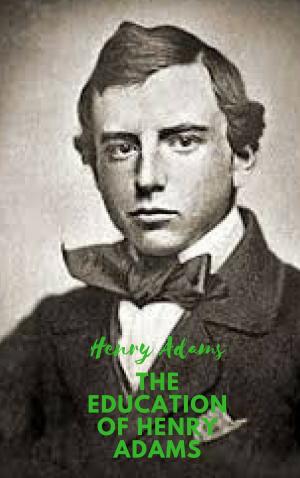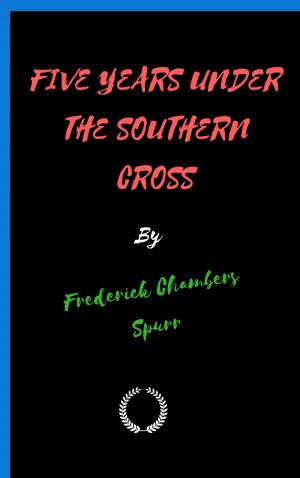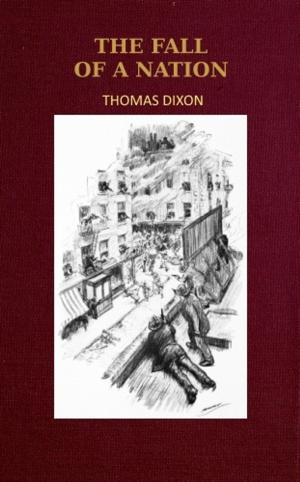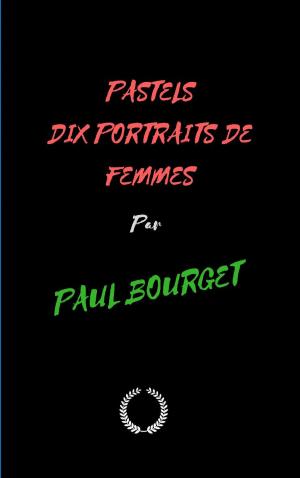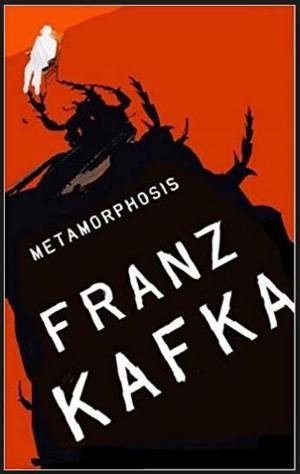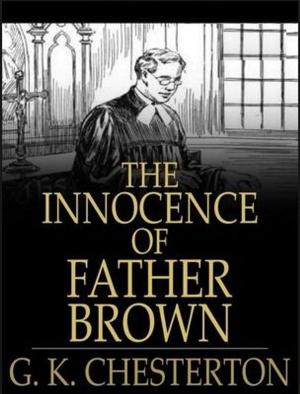MY LIFE IN MANY STATES AND IN FOREIGN LANDS
Fiction & Literature, Action Suspense, Classics, Historical| Author: | George Francis Train | ISBN: | 1230002419800 |
| Publisher: | Jwarlal | Publication: | July 10, 2018 |
| Imprint: | Language: | English |
| Author: | George Francis Train |
| ISBN: | 1230002419800 |
| Publisher: | Jwarlal |
| Publication: | July 10, 2018 |
| Imprint: | |
| Language: | English |
My grandfather was the Reverend George Pickering, of Baltimore—a slave-owner. Having fallen in with the early Methodists, long before Garrison, Phillips, and Beecher had taken up the abolition idea, he liberated his slaves and went to preaching the Gospel. He became an itinerant Methodist preacher, with the pitiable salary of $300 a year. The sale of one of his "prime" negro slaves would have brought him in more money than four years of preaching. He would have been stranded very soon if he had not had the good sense to marry my beautiful grandmother, who had a thousand-acre farm at Waltham, ten miles out of Boston. My grandfather thus could preach around about the neighborhood, and then come back to the family at home. My father married the eldest daughter of this Methodist preaching grandfather of mine, Maria Pickering.
I was born at No. 21 High Street, Boston, during a snow-storm, on the 24th of March, '29. When I was a baby, my father went to New Orleans and opened a store. Soon after arriving in that city I was old enough to observe things, and to remember. I can recollect almost everything in my life from my fourth year. From the time I was three years old up to this present moment—a long stretch of seventy years, the Prophet's limit of human life—I can remember almost every event in my life with the greatest distinctness. This book of mine will be a pretty fair test of my memory.
I can remember the beautiful flowers of the South. How deeply they impressed themselves upon my mind! I can recall the garden with its wonderful floral wealth, the gift of the Southern sun. I can recollect exactly how the old clothesline used to look, with its load of linen—the resting-place of the long-bodied insects we called "devil's darning needles," or mosquito hawks—and how we children used to strike the line with poles, to frighten the insects and see them fly away on their filmy wings. And I can remember going down to my father's store, filling the pockets of my little frock with dried currants, which I thought were lovely, and watching him there at his work.
Rev. George Pickering
Rev. George Pickering, George Francis Train's grandfather.
Then came the terrible yellow-fever year. It is still known there as the year of the fever, or of the plague. This fearful epidemic swept over the city, and left it a city of the dead. It was a catastrophe recalled to me by that of Martinique. My family suffered with the rest of the city. I remember well the horror of the time. There were no hearses to be had. Physicians and undertakers had gone to the grave with their patients and patrons. The city could not afford to bury decently so many of its dead inhabitants. And the fear of the plague had so shaken the human soul that men stood afar off, aghast, and did only what they had to do in a coarse, brutal, swift burial of the dead.
There were no coffins to be had, and no one could have got them if there had been enough of them. Corpses were buried, all alike, in coarse pine boxes, hastily put together in the homes—and often by the very hands—of the relatives of the dead. One day they brought into our home a coarse pine box. I did not know what it was or for what it was meant. Then I saw them take the dead body of my little sister Josephine and put it hastily into the rough pine box. I was too young to understand it all, but I can never forget that scene; it starts tears even now. After nailing up the box and marking it to go "To the Train Vaults," the family sat and waited for the coming of the "dead wagon." The city sent round carters to pick up the numerous dead, just as it had formerly sent out scavenger carts to take away the refuse.
We could hear the "dead wagon" as it approached. We knew it by the dolorous cry of the driver. It drew nearer and nearer to our home. It all seemed so terrible, and yet I could not understand it. I heard the wagon stop under our window. Now the scene all comes back to me, and it recalls the rumble and rattle of those tumbrels of the French Reign of Terror: only it was the fever, instead of the guillotine, that demanded its victims. The driver would not enter the pest-stricken houses. He remained in his cart, and shouted out, in a heart-tearing cry, to the inmates to bring their dead to him. As he drove up to our window he placed his hands around his mouth, as a hunter does in making a halloo, and cried: "Bring out—bring out your dead!"
My grandfather was the Reverend George Pickering, of Baltimore—a slave-owner. Having fallen in with the early Methodists, long before Garrison, Phillips, and Beecher had taken up the abolition idea, he liberated his slaves and went to preaching the Gospel. He became an itinerant Methodist preacher, with the pitiable salary of $300 a year. The sale of one of his "prime" negro slaves would have brought him in more money than four years of preaching. He would have been stranded very soon if he had not had the good sense to marry my beautiful grandmother, who had a thousand-acre farm at Waltham, ten miles out of Boston. My grandfather thus could preach around about the neighborhood, and then come back to the family at home. My father married the eldest daughter of this Methodist preaching grandfather of mine, Maria Pickering.
I was born at No. 21 High Street, Boston, during a snow-storm, on the 24th of March, '29. When I was a baby, my father went to New Orleans and opened a store. Soon after arriving in that city I was old enough to observe things, and to remember. I can recollect almost everything in my life from my fourth year. From the time I was three years old up to this present moment—a long stretch of seventy years, the Prophet's limit of human life—I can remember almost every event in my life with the greatest distinctness. This book of mine will be a pretty fair test of my memory.
I can remember the beautiful flowers of the South. How deeply they impressed themselves upon my mind! I can recall the garden with its wonderful floral wealth, the gift of the Southern sun. I can recollect exactly how the old clothesline used to look, with its load of linen—the resting-place of the long-bodied insects we called "devil's darning needles," or mosquito hawks—and how we children used to strike the line with poles, to frighten the insects and see them fly away on their filmy wings. And I can remember going down to my father's store, filling the pockets of my little frock with dried currants, which I thought were lovely, and watching him there at his work.
Rev. George Pickering
Rev. George Pickering, George Francis Train's grandfather.
Then came the terrible yellow-fever year. It is still known there as the year of the fever, or of the plague. This fearful epidemic swept over the city, and left it a city of the dead. It was a catastrophe recalled to me by that of Martinique. My family suffered with the rest of the city. I remember well the horror of the time. There were no hearses to be had. Physicians and undertakers had gone to the grave with their patients and patrons. The city could not afford to bury decently so many of its dead inhabitants. And the fear of the plague had so shaken the human soul that men stood afar off, aghast, and did only what they had to do in a coarse, brutal, swift burial of the dead.
There were no coffins to be had, and no one could have got them if there had been enough of them. Corpses were buried, all alike, in coarse pine boxes, hastily put together in the homes—and often by the very hands—of the relatives of the dead. One day they brought into our home a coarse pine box. I did not know what it was or for what it was meant. Then I saw them take the dead body of my little sister Josephine and put it hastily into the rough pine box. I was too young to understand it all, but I can never forget that scene; it starts tears even now. After nailing up the box and marking it to go "To the Train Vaults," the family sat and waited for the coming of the "dead wagon." The city sent round carters to pick up the numerous dead, just as it had formerly sent out scavenger carts to take away the refuse.
We could hear the "dead wagon" as it approached. We knew it by the dolorous cry of the driver. It drew nearer and nearer to our home. It all seemed so terrible, and yet I could not understand it. I heard the wagon stop under our window. Now the scene all comes back to me, and it recalls the rumble and rattle of those tumbrels of the French Reign of Terror: only it was the fever, instead of the guillotine, that demanded its victims. The driver would not enter the pest-stricken houses. He remained in his cart, and shouted out, in a heart-tearing cry, to the inmates to bring their dead to him. As he drove up to our window he placed his hands around his mouth, as a hunter does in making a halloo, and cried: "Bring out—bring out your dead!"


